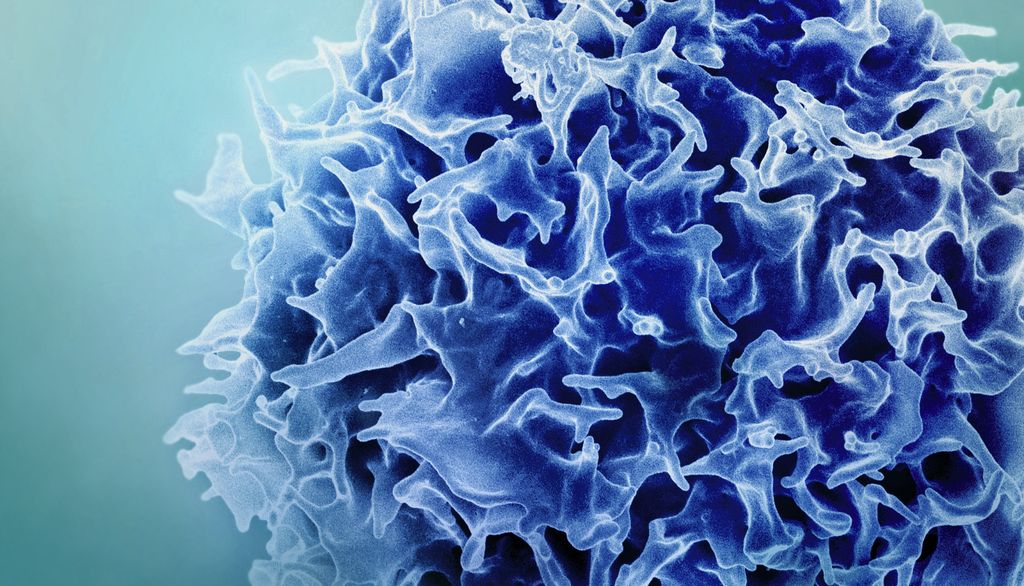Follow us on Google News (click on ☆)
A study recently published in the Journal of Allergy and Clinical Immunology by a research team from France and Laval University suggests that this weakness of the vaccine may be due to a cascade of reactions that affect immune system cells, the T lymphocytes.

T lymphocytes play a role in the development of immune memory. Their DNA is damaged during a cascade of reactions triggered by a SARS-CoV-2 protein. This damage could explain why the body fails to mount a long-lasting immune response.
Image NIH/NIAID
"We believe that by blocking this cascade of reactions, we could improve immune memory and significantly extend the duration of protection provided by this vaccine," says the study leader, Jérôme Estaquier, a professor at the Faculty of Medicine at Laval University and researcher at the CHU de Québec - Université Laval Research Center.
It is worth recalling that the COVID-19 vaccine contains RNA that instructs human cells to produce a viral protein, the spike protein (S). "The body then mounts an immune response that will help prevent the development of the disease when it encounters the virus," explains Professor Estaquier.
In a previous study, his team demonstrated that in people suffering from severe COVID-19, a cascade of reactions triggered by the S protein led to a weakening of the immune response associated with the death of T lymphocytes. "Since the vaccine induces the production of the S protein by the body, we wanted to know if the same cascade of reactions was present, at least temporarily, in people who get vaccinated," the researcher specifies.
The Franco-Quebec team followed 30 people who had just received a COVID-19 vaccine for 28 days to measure various parameters of their immune response. The data show that, as expected, the production of the S protein increases in the days following vaccination. It peaks on the 14th day and almost completely disappears after 28 days.
"The increase in S protein triggers the same cascade of reactions as that observed in people with COVID-19," summarizes Professor Estaquier. "One of the steps in this cascade is the production of reactive oxygen species that damage the DNA of T lymphocytes. We believe that this damage could explain why the body fails to establish long-lasting immune memory and why boosters are needed to maintain protection against the virus."
Professor Estaquier's team now plans to test this hypothesis by using a reactive oxygen species inhibitor, N-acetylcysteine, as a supplement to vaccination. "This is an amino acid already used for various purposes in humans. We will administer it orally to people who have just received the vaccine. This will allow us to evaluate its effectiveness in protecting T lymphocytes and thus improve the duration of protection provided by vaccination."
The COVID-19 vaccine is a very good vaccine, insists Professor Estaquier, but the short duration of protection it provides is a significant drawback. "A large portion of the population does not want to get vaccinated against COVID-19 every six months. If we want to maintain high vaccination rates, we need to listen to the needs of the population and find ways to address this issue."